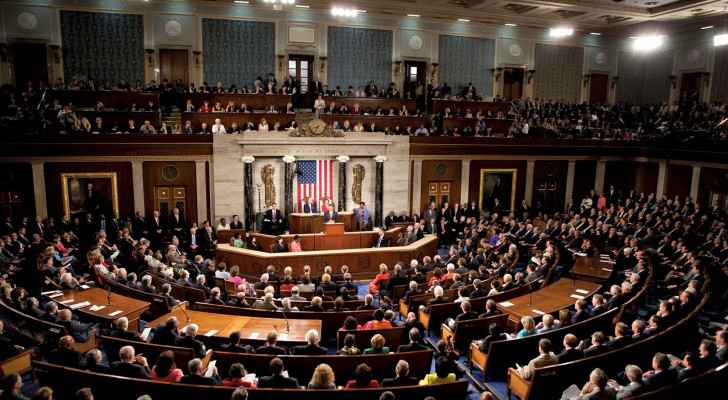Israel’s war on NGOs takes a worrying turn - By Ramzy Baroud, The Jordan Times
“You deserve to see your loved ones suffer and die. But, maybe, you would be hurt before them,” was part of a threatening message received by a staff member of Al Mezan, a Gaza-based human rights group.
The photo attached to the e-mail was of the exterior of the activist’s home. The gist of the message: “We are coming for you.”
Al Mezan, along with three other Palestinian rights groups — Al Haq, Aldameer and the Palestinian Centre for Human Rights — are actively pushing a case against Israel at the International Criminal Court (ICC), accusing it of war crimes in Palestine, particularly during the war on Gaza in 2014.
In April 2015, the Palestinian Authority officially signed the Rome Statute and a few months later, in November, the groups presented a substantial amount of evidence of Israel’s suspected war crimes and crimes against humanity.
But even before these dates, the war on independent rights groups was already heating up.
Restrictions on Israeli NGOs, especially those that challenge the Israeli occupation of Palestine, are fairly recent; pressure, violence, restriction of movement, raiding of offices and arrests have characterised Israeli policy against Palestinian rights groups.
The most recent episode is only one example.
“Since September 2015, several organisations have faced ruthless smear and intimidation campaigns seeking to discredit them and stoke insecurity among their staff,” Amjad Iraqi wrote in Israel’s +972Mag.
“The harassment culminated in death threats made against two individuals: A senior Palestinian advocate with Al Mezan and Nada Kiswanson, a Palestinian-Swedish lawyer who is Al Haq’s representative in The Hague.”
Israel is, no doubt, feeling embattled. Its carefully crafted brand — that of an oasis of democracy in an arid authoritarian desert — is now full of holes.
Its occupation, wars and siege of East Jerusalem, West Bank and Gaza, and the dissemination of images and information about such conduct through the Internet and social media platforms is making it impossible for Israel to sustain its official hasbara. Hence, the angry backlash.
The Israeli Knesset has been busy passing laws and proposing bills aimed at restricting the work of its own rights groups or any independent civil society organisation that seems, in any way, critical of the government and sympathetic towards the Palestinians.
The NGO Law is now in effect. It forces NGOs to declare their sources of funding and punishes those who refrain from doing so.
It also levies heavy taxes on such funds, even when declared.
The European Union, along with the United States government, warned Israel against such laws, but to no avail. The bill is written in broad terminology, making it possible for the government to target such organisations without appearing vindictive or politically motivated.
“What is happening in Israel now is fascism,” said David Tartakover, who was quoted in the British newspaper The Guardian.
Tartakover, the artist who designed the logo for the Israeli Peace Now campaign in the late 1970s, described “a slow creep of limitations” that began in 1995 (following the assassination of prime minister Yitzhak Rabin by a Jewish extremist), but that accelerated over the last year.
One example includes the “Loyalty in Culture Bill”, which, according to Michael Griffiths, of The Guardian, sounds like “something out of Nineteen Eighty-Four”. But it is no fiction.
The bill targets artists and authors, and withholds funding from organisations that promote any material deemed objectionable by Israel’s political establishment.
This led to the banning of “Borderlife”, an Israeli novel by Dorit Rabinyan depicting a love story between a Palestinian man and a Jewish woman.
Israel’s minister of education, hardliner Naftali Bennett, banned the novel because it promotes “assimilation” between the races.
With the “most right-wing government” in Israeli’s history now in charge, and an equally hawkish parliament, the onslaught of contentious bills is likely to continue.
However, while Israel’s own organisations, rights groups and dissenting artists are targeted by bans, fines and withholding of funds, Palestinians are threatened with much more severe consequences.
To appreciate this more, one ought to look at the language used by a recent conference organised by Israeli newspaper Yediot Ahronot.
According to investigative journalist Richard Silverstein, the conference, which mainly attacked the international boycott, divestment and sanctions movement (BDS), “has become a veritable carnival of hate”.
“Everyone from delusional Hollywood celebrities to Cabinet ministers, to the leader of the opposition have pledged fealty to the cause,” he wrote.
Top officials included Intelligence Minister Israel Katz, who called for the “civil targeted killing” of BDS leaders like Omar Barghouthi.
According to Silverstein, the phrase Katz used is “sikul ezrahi memukad”, which “derives from the euphemistic Hebrew phrase for the targeted killing of a terrorist, which literally means ‘targeted thwarting’.”
Working hand in hand with various Western governments, Israel’s official perception of the non-violent BDS movement is reaching the point of treating the civil society movement as if a criminal organisation.
BDS merely demands moral and legal accountability from Western governments and corporations that contribute in any way to Israel’s violations of human rights and international law.
The recent death threats against rights activists who are pressing for respect of international law and for justice for thousands of Gazan civilians killed during recent wars is a natural progression of Israel’s relentless efforts.
While restricting the work of independent rights groups is quite common in the Middle East, Israel’s campaign is most dangerous for it receives little media coverage and, at times, outright support from US and other Western governments.
The latest such support is the recently passed legislation at the Democratic-led legislature in the state of New Jersey, which was signed by Governor Chris Christie. New Jersey is now the latest of US states to outlaw BDS and that vows to punish any company that joins the boycott of Israel campaign.
With little or no accountability, Israel will continue to target NGOs, threaten activists and restrict the work of anyone who dares to be critical.
Tartakover is, of course, right.
Latest News
 Iran to receive Su-35 fighter jets from Russia by next week
Iran to receive Su-35 fighter jets from Russia by next week King warns of escalation threatening international peace
King warns of escalation threatening international peace US to sanction “Israeli” army battalion over human rights violations
US to sanction “Israeli” army battalion over human rights violations Hamas condemns massive American military aid package to “Israel”
Hamas condemns massive American military aid package to “Israel” Deadly blast at Iraq army base amid Israel-Iran tensions
Deadly blast at Iraq army base amid Israel-Iran tensions
Most Read Articles
- Trump postpones first rally since trial began, due to bad weather
- King attends civil defence exercise
- Netanyahu vows to increase military pressure on Hamas
- JAF carries out 8 more airdrops of aid to northern Gaza
- “Israeli” army says it approved plans for “continuation of war in Gaza”
- 25.3% increase in tourism departures in 2024 — report
- Housing Bank Holds Its 51st General Assembly Meeting
- Hundreds in Niger tell US troops to go home
- Violence-battered Ecuadorans vote on anti-crime measures
- Erdogan arrives in Baghdad for first official visit since 2011